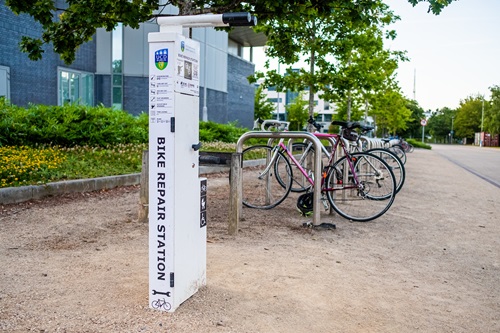Climate science
Climate science is the study of the Earth’s climate. Climate change refers to long-term shifts in temperatures and weather patterns. These shifts may be natural, but since the 1800s, human activities have been the main driver of climate change, primarily due to the burning of fossil fuels (like coal, oil and gas), which produces heat-trapping gases. Climate models are used to create projections into the future, generally to the year 2100, for different climate scenarios.
Many researchers in UCD use climate model data in their research. Among them:
- Dr Conor Sweeney investigates the impacts of climate change on wind and PV electricity generation.
- Dr Fiachra O'Loughlin models floods and droughts.
- Professor Frederic Dias has a team focussed on waves and wave energy.
- Dr Gerald Mills works on urban climate change.





